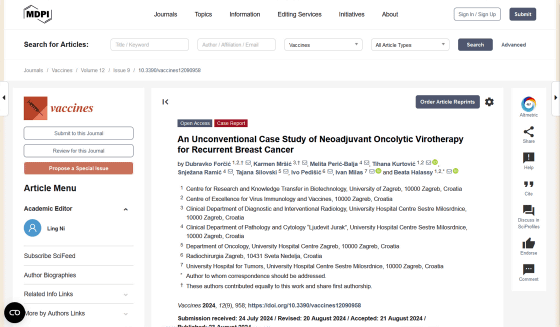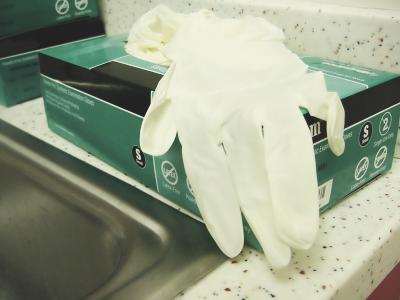Scientist treats breast cancer by injecting herself with lab-grown virus

When it is difficult for scientists to recruit subjects to conduct experiments, they sometimes resort to
An Unconventional Case Study of Neoadjuvant Oncolytic Virotherapy for Recurrent Breast Cancer
https://www.mdpi.com/2076-393X/12/9/958

This scientist treated her own cancer with viruses she grew in the lab
https://www.nature.com/articles/d41586-024-03647-0
In 2020, when she was 49 years old, Harassy learned that breast cancer had recurred in the area where she had previously had a mastectomy. This was the second time cancer had recurred in this area, so Harassy decided to try a treatment called 'oncolytic virotherapy (OVT)' on her own body, which infects cancer cells with a tumor-lytic virus to cause cell death.
OVT is a treatment that uses a virus to attack cancer cells and induce the immune system to fight them. Most clinical trials to date have been aimed at late-stage metastatic cancer. However, in recent years, attempts to use OVT for earlier stages of cancer have also been gaining momentum.
Although Harassy is not an expert on OVT, he has expertise in cultivating and purifying viruses in the laboratory as a virologist, so he was confident about self-experimenting with OVT. Although a type of OVT targeting malignant melanoma has been approved in the United States, an OVT targeting breast cancer has not been approved in any country.

To treat breast cancer, Harassy decided to use two different viruses,
Hallassy had worked with both viruses in previous studies, and was confident that they were safe: the measles strain he chose was one commonly used in childhood vaccines, while the vesicular stomatitis virus was only dangerous enough to induce mild flu-like symptoms at worst.
For the experiment, Harassy's colleagues injected the drug directly into breast cancer tumors over a two-month period, with Harassy's oncologist monitoring the progress and ready to switch to chemotherapy if the treatment didn't work.
During the course of treatment, Mr. Harassy's tumor significantly shrunk, softened, and was detached from the chest muscle and skin, making it easier to surgically remove. Mr. Harassy also reportedly experienced no serious side effects. Analysis of the tumor after removal showed that it was sufficiently infiltrated with lymphocytes, which are immune cells, suggesting that OVT worked as expected and triggered an immune system response. 'It certainly triggered an immune response,' said Mr. Harassy, and his cancer has not recurred since undergoing a year of chemotherapy after surgery.

'My main concern was always the ethical issues,' Harassy told Nature.
Jacob Shelkopf, a medical researcher at the University of Illinois at Urbana-Champaign who has studied the ethics of self-experimentation on COVID-19 vaccines, said he wasn't surprised that academic journals expressed concerns about the publication of Hallassy's paper.
The problem, Shelkoff points out, is that by publishing the results of Harassy's self-experimentation, 'other cancer patients may reject conventional treatments and attempt similar self-experiments.' Patients with difficult-to-treat cancers are prone to jumping on unproven treatments, so the publication of such results is important. At the same time, it is also important not to lose the knowledge gained from self-experimentation, and Harassy's paper, which was eventually published in an academic journal, emphasizes that 'self-treatment with a virus should not be the first approach when diagnosed with cancer.'
Harassy says he has no regrets about his own treatment or his efforts to publish, and he believes that because OVT requires so much scientific knowledge and skill, it's unlikely that cancer patients will follow his lead.
Based on his experience with self-treatment, Dr. Harassy has begun a new research project, 'OVT for the treatment of cancer in livestock,' and has already been successful in obtaining research funding. 'The focus of my lab has completely changed, and this is because of my positive experience with self-treatment,' said Dr. Harassy.
Related Posts:
in Science, Posted by log1h_ik







